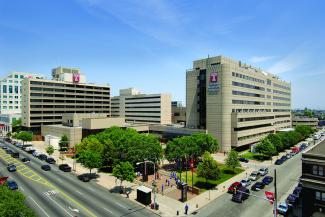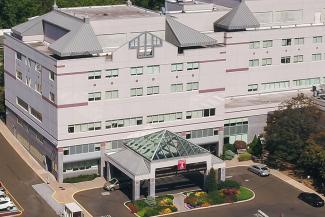Shoulder surgery can repair injured muscles, tendons, cartilage, tissue or bones in and around the shoulder joint. The goal of surgery is to restore function to the shoulder, helping you move through your day pain free and enjoy your favorite sports or activities again.
Types of Shoulder Surgery
At Temple Health, we offer a wide range of surgical options from minimally invasive procedures to advanced surgeries. Common shoulder surgeries include:
-
Shoulder instability/labrum surgery – Arthroscopic repair of the shoulder labrum, the thick cartilage lining the rim of the socket, and the capsule are performed following dislocation or repetitive stress that damages the capsule and labrum as seen in contact and overhead activities.
-
Rotator cuff repair – Damage to the rotator cuff is commonly caused by repetitive motion or overhead activities, but can be acute related to a traumatic injury. Arthroscopic rotator cuff repair uses small suture anchors to repair the damaged tendon back to the bone to restore motion, strength and function of the shoulder.
-
Shoulder replacement – The ball and socket shoulder joint is replaced with artificial parts made of metal and plastics to restore movement and reduce pain in the shoulder caused by advanced arthritis, complex fractures and other serious, chronic conditions.
Recovery
Shoulder surgery replacement is a complex procedure and recovery can vary across individuals. Talk to your doctor about what you should expect after your procedure.


